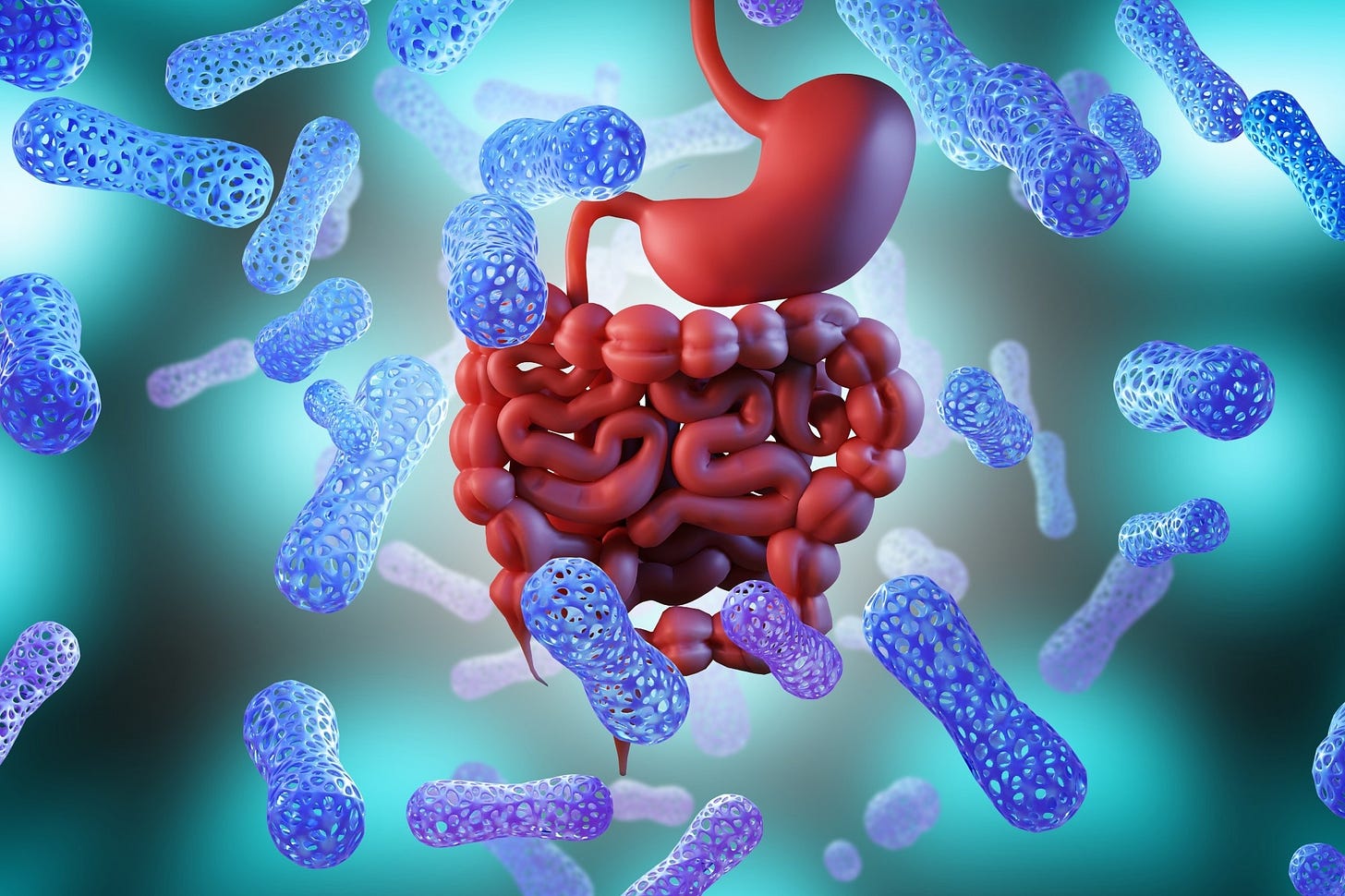STUDY ANALYSIS: Gut Bacteria and Strength Gain
Do some kinds of bacteria make us stronger?
We’re only just beginning to understand the importance to physical and mental health of the gut microbiome—the enormous colony of bacteria, fungi and other microorganisms that inhabit our digestive systems. One important reason why we’re so unhealthy, why chronic disease has reached epidemic levels throughout the Western world, is because our guts are under constant attack, whether it’s the pesticides and microplastics we’re constantly swallowing, modern medicines—new research is showing that even common medicines like paracetamol can have profound long-term effects on our gut health—or our sedentary lifestyles and bad diets, which promote the growth of pathogenic microorganisms at the expense of kinds that benefit our health.
I’ve Tweeted at length about the role of the gut microbiome in maintaining optimal hormonal health. There are particular species of bacteria, like Lactobacillus reuteri, that increase the body’s production of specific hormones, including testosterone. How they do this isn’t exactly clear at this point, but we know that they do.
One particular strain of L. reuteri, ATCC 6475, is the active ingredient in the probiotic Gastrus; I’ve written about it here. This particular strain was isolated from the breastmilk of a Finnish woman. It’s been shown to reduce inflammation in the gut and to strengthen bones. In one study, mice given L. reuteri stayed strong and lean, even when they were fed an imitation junk-food diet. In another study, the strain reversed aging in older male mice, including increasing the size of their testes. In a third study, supplementation with reuteri significantly increased the testosterone levels of male mice. It increased the number of Leydig cells producing testosterone in the testes, increased sperm count and prevented testicular atrophy in old age.
One researcher believes lactic-acid bacteria like reuteri “may have co-evolved with mammals exploiting testosterone. to optimize mental, physical and reproductive fitness.” In other words, by helping to boost the host mammal’s testosterone levels, lactic-acid bacteria increased their own chances of survival.
A new study sheds further light on the relationship between the gut and physical health. It shows that previously inactive people who begin a modest course of resistance training—lifting weights just two to three times a week—experience significant changes in the composition of their gut microbiome. The changes take place quickly too, in as little as eight weeks.




